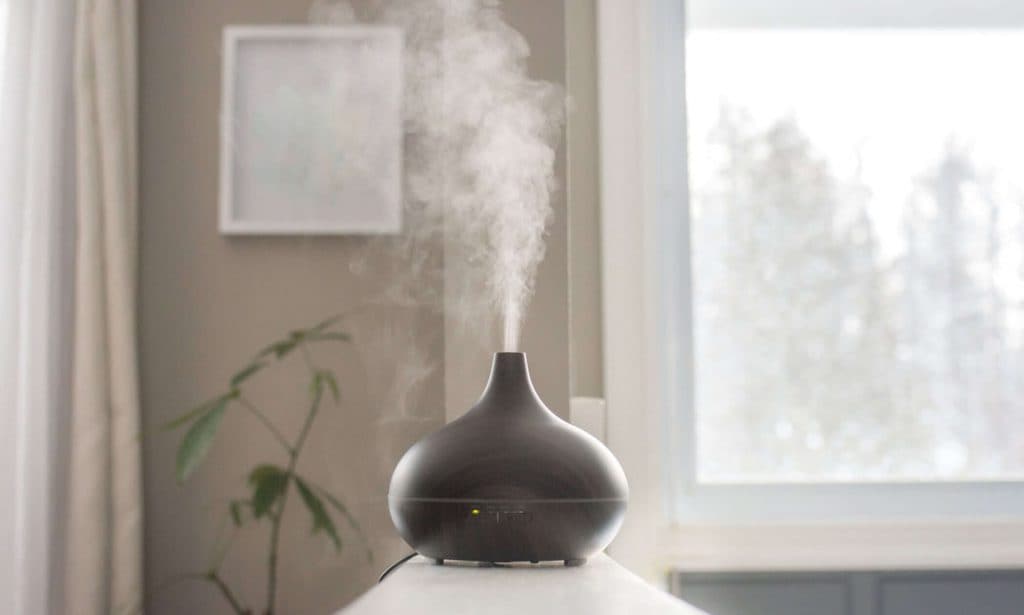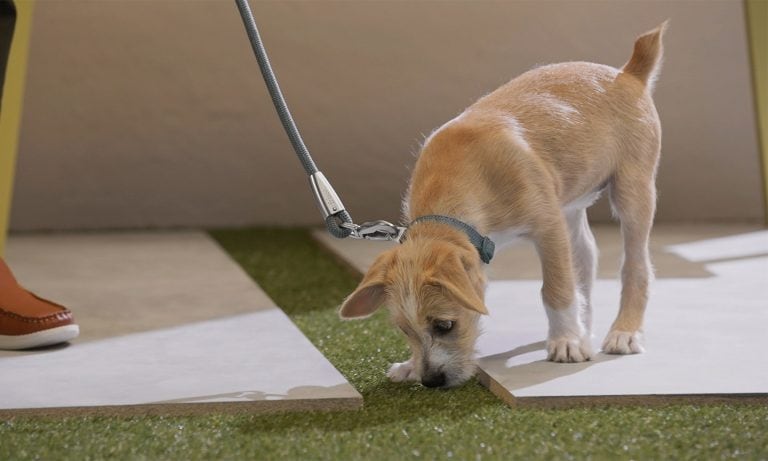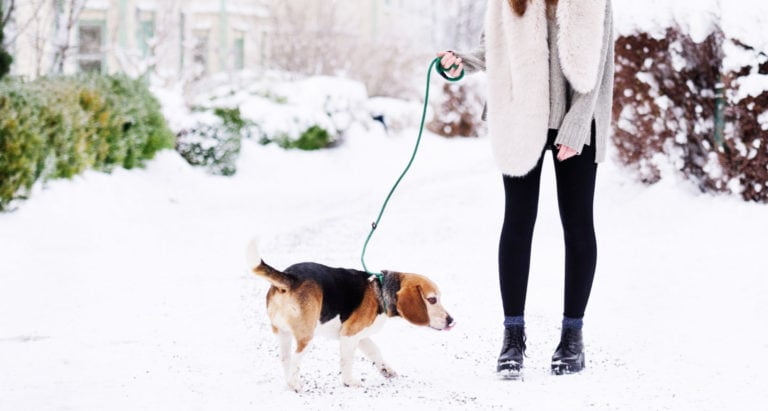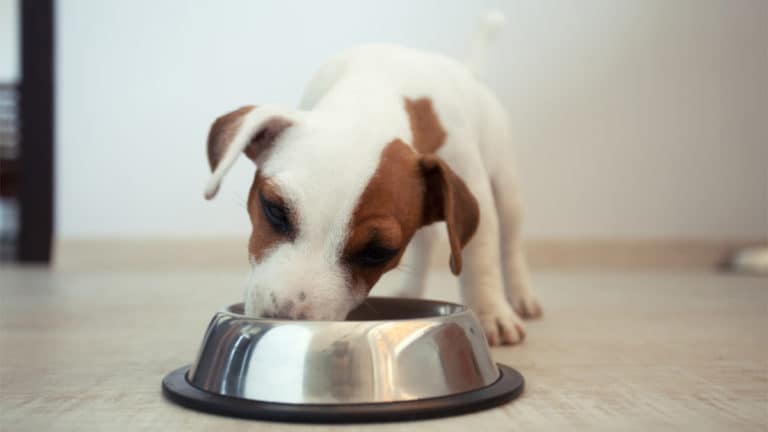There’s a lot to love about essential oils. They smell great, and some scents even offer potential health benefits, from decreased anxiety to improved sleep. Breathe in (mmmm), breath out (ahhh).
However, if you have pets, you’ll want to think twice before you pull out your diffuser and pop in that peppermint. Dogs and essential oil diffusers are a tricky combination—in fact, some methods and products can be downright dangerous.
So what’s an aromatherapy-loving pet parent to do? We talked with veterinarians to determine what types of diffusers are best, what to avoid and how to shop safely.
What Are Essential Oils?
Essential oils are super-concentrated plant extracts. Manufacturers extract the unique smell—or “essence”—from a plant by either distilling it over boiling water, or by mechanical methods such as cold pressing. Then, the fragrant compounds are mixed with unscented “carrier oils” to dilute the potency and make them easier (and in some cases safer) to use.
Essential oils can be used in a variety of ways—some people apply oils directly to the skin, while others incorporate them into tonics and recipes. One of the most common ways to enjoy an essential oil is to add it to a diffuser, which breaks down the scent and dispersers it throughout the home.
Are Essential Oils Safe for Dogs and Other Pets?
Although some people use essential oils orally and topically for their own health needs, essential oils sold for human use should never be administered directly to pets, cautions Dr. Michelle Lugones, DVM, a veterinarian at Best Friends Animal Society in New York.
"Essential oils can be very dangerous," she says. "They're easily inhaled and absorbed through the skin, and can be ingested. Once inside a pet's body, essential oils can cause seizures, vomiting, difficulty breathing, liver failure and pneumonia."
Home remedies for fleas or skin ailments using essential oils can be dangerous and are never advised, as concentrations and purity vary widely. Some essential oils are known to be especially toxic to pets—including popular formulas such as tea tree oil, wintergreen and pennyroyal—and pet parents should not even apply these on themselves to avoid their pets coming in contact with the oil on their skin, adds Dr. Lugones.
Again, while home remedies using concentrated essential oils should be strictly avoided due to potential toxicity, there are commercially available products which, when used correctly according to package directions and, if necessary, with advice from your vet, are pet safe (see more on those below).
Which Pets Are Most at Risk?
Essential oils can be dangerous for all pets, including cats, dogs, birds, gerbils and other small animals.
Cats, however, are most at risk, warns Dr. Richardson. “Cats are more susceptible to essential oils than some other species, as they are missing a specific enzyme in their liver that helps them metabolize certain drugs, including essential oils,” she explains.
Additionally, cats are prolific groomers, and are more likely to ingest oil droplets that have landed on their fur from diffusers. In fact, the ASPCA identifies essential oils as one of the most common toxic causes of tremors in cats.
But what about diffusers? How risky are essential oils when lingering in the air as opposed to directly on a pet’s body?
Are Essential Oil Diffusers Safe for Pets?
Different types of diffusers pose different degrees of risk. There are two types of diffusers to consider:
Passive Diffusers
Passive diffuser—such as reed diffusers and heat diffusers—work by evaporating the essential oil and emitting a pleasant smell. Or at least, a smell that is pleasant to humans. When inhaled, essential oils can be overwhelming for many pets (remember, your dog’s nose is stronger than yours!) and cause serious respiratory issues in others.
“Pets have much more sensitive respiratory tracts than we do, and heavy fragrances from essential oil diffusers can cause an inflammatory response, resulting in an asthma attack if they are susceptible,” explains Dr. Jamie Richardson, VBetMed, chief of staff at Small Door Veterinary in New York City.
Active Diffusers
Active diffusers—such as nebulizing diffusers and ultrasonic diffusers—disperse essential oils more aggressively. In addition to emitting aromas, they spray small particles of oil into the air. While the droplets may be tiny, they can cause big problems for pets, ranging from skin irritation to neurological symptoms.
“These droplets could fall onto your pet’s fur coat, leading to absorption or ingestion during grooming,” says Dr. Richardson. “Essential oils are highly concentrated, and so even a few drops of some oils could prove toxic to your pet.”
Essential Oil Candles: What You Need to Know
So say you’re not an essential oils type. Your pets are safe, right? Before you breathe easy, consider your candles. If they contain essential oils, they’re essentially mini diffusers.
“Candles containing essential oils can cause the same problems as diffusers,” says Dr. Shawna Garner, DVM, operations team lead at FirstVet, and owner of Albright Veterinary Services in Marshall, Illinois. “Animals can also suffer digestive problems if they eat a large amount of wax from candles containing essential oils.” (Keep in mind that if a candle smells like a dessert, many dogs will assume that it is a dessert.)
Heavily scented candles are often used to mask pet smells, but they can do more harm than good.
“Dogs and cats have very sensitive noses and airways,” says Dr. Garner. “It may be tempting to cover up the smell of pets with other scents, but the best way to keep the odor at bay is to keep your pet and their bedding clean, and to make sure that the space is well ventilated.”
Dogs and Essential Oil Diffusers: Safety Tips
The best way to protect your pet from essential oils is to simply not use them in your home. If you want to continue to use an essential oil diffuser, Dr. Richardson recommends the following best practices:
- Do not use a diffuser if your pet has asthma. Sorry, this one is a non-negotiable! Pets with respiratory issues should simply not be exposed to essential oil diffusers.
- Never apply oils to your pet. As a reminder, never use your diffuser oils, or any essential oils, on your pet’s skin or in their food.
- Choose a passive diffuser. Don’t use an active diffuser or any device that sprays oil particles into the air.
- Location, location, location. Place your diffuser in a part of the home where your pet doesn't spend much time. Do not use diffusers near your pet’s food, bedding or litter box. Ensure that your pet cannot knock over the diffuser (for those with curious cats, this can be a tricky task).
- Ventilate your home. Open the windows routinely for fresh air, and don’t leave the diffuser running constantly.
- Store oils safely. Keep all essential oils in a locked cabinet, well out of your pet’s reach. Interesting scents might tempt some pets to explore, leading to a dangerous taste test.
Shop Smart: Pet-Safe Essential Oil Diffusers
Want to keep your pet safe and your home fresh? Consider the following pet-friendly products:
The BeChewy Breakdown
- Never use your own essential oils on your pets.
- The essential oils you put in a diffuser can be dangerous to pets, but if you really want to use one:
- Choose a passive reed diffuser
- Keep it away from your pets and their stuff
- Ventilate
- Avoid the issue altogether and opt for diffusers made especially for pets.
Share:










